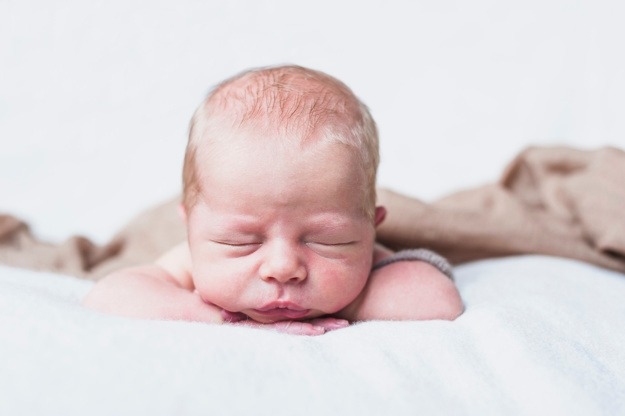
Learn About Infant Sleep Apnea
9 Aug 2018 | 3 min Read
Babychakra
Author | 1369 Articles
Infant sleep apnea is a condition where breathing becomes difficult for an infant while they are asleep. While it is rare in full-term infants, sleep apnea can occur more prominently in babies that are pre-term.
Read on to find out the causes, symptoms, and recovery for sleep apnea in children.
Types of Sleep Apnea
There are three main types of sleep apnea that affect infants. The first is called obstructive sleep apnea of which children are affected by the most. This is where the upper airway is congested, hindering the airflow process.
The second is called central sleep apnea. Though not as common, it is more serious and is caused by the failure of the central nervous system. Because of this, the brain doesn’t send or receive the signals required to regulate effective breathing.
Mixed sleep apnea is the third type of sleep apnea that presents the effects of both obstructive and central types of apnea at once. This is extremely rare.
Causes
During sleep, tissues fold together due to the reduction in muscle tone. This can cause obstruction and make breathing through the nose difficult or nearly impossible.
Some general causes of sleep apnea in infants are:
- Adenoids
- Enlarged tonsils
- Obesity
- Acid Reflux
- Lung congestion
Some less common causes of infant sleep apnea include:
- Exposure to chemicals/drugs
- Nervous system related diseases
- Tumour in the airway

Symptoms
If you are worried that your child may be suffering from sleep apnea, then you should be on the lookout for the following symptoms while your baby is sleeping:
- Long gasps
- Pause in chest movement
- Deep breathing
- Irritability
- Different sleeping positions with neck upwards or upper body twisted sideways
- Short periods of irregular breathing
- Restlessness
Other than these, two related symptoms you may observe when your child is awake are excessive daytime sleepiness and lack of concentration.
Diagnosis and Treatment
A paediatrician will be able to diagnose infant sleep apnea by conducting a physical examination. In some cases, the doctor may even suggest following a sleep study where the child will be under the observation of a sleep specialist. This specialist will check for vitals such as heart and breathing rates when the baby is asleep.
There are multiple methods of treating sleep apnea in infants and these vary depending on the age of the child as well as the stage and cause of sleep apnea.
- Antibiotics are the primary course of treatment to resolve inflammation or infection in case that is the cause of sleep apnea.
- Tonsillectomy or adenoidectomy are surgical processes of removing the gland causing the sleep apnea, especially if the glands are enlarged.
- To correct air pressure issues, a face mask may be provided during sleep, depending upon the intensity of the sleep apnea
- If the child is overweight, dietary changes could also help resolve the problem
- If the sleep apnea is related to the nervous system, in severe cases, surgery around the skull may be required.

Takeaway
If you suspect that your child may have sleep apnea, it is vital that you consult a paediatrician immediately. Sleep apnea, if not diagnosed, can lead to adverse long-term effects such as lung damage.
On a parting note, if you know someone who may be suffering from this ailment, you can share this article and help them out.
A


Related Topics for you
Suggestions offered by doctors on BabyChakra are of advisory nature i.e., for educational and informational purposes only. Content posted on, created for, or compiled by BabyChakra is not intended or designed to replace your doctor's independent judgment about any symptom, condition, or the appropriateness or risks of a procedure or treatment for a given person.
